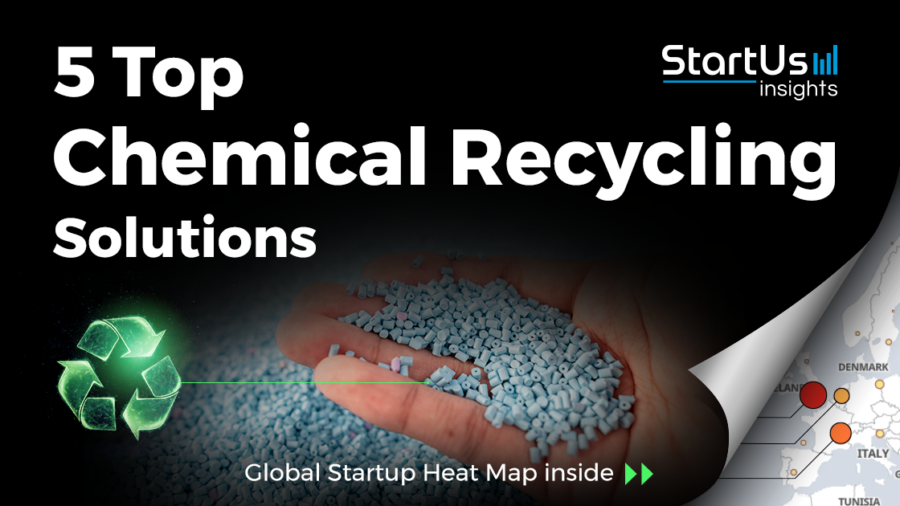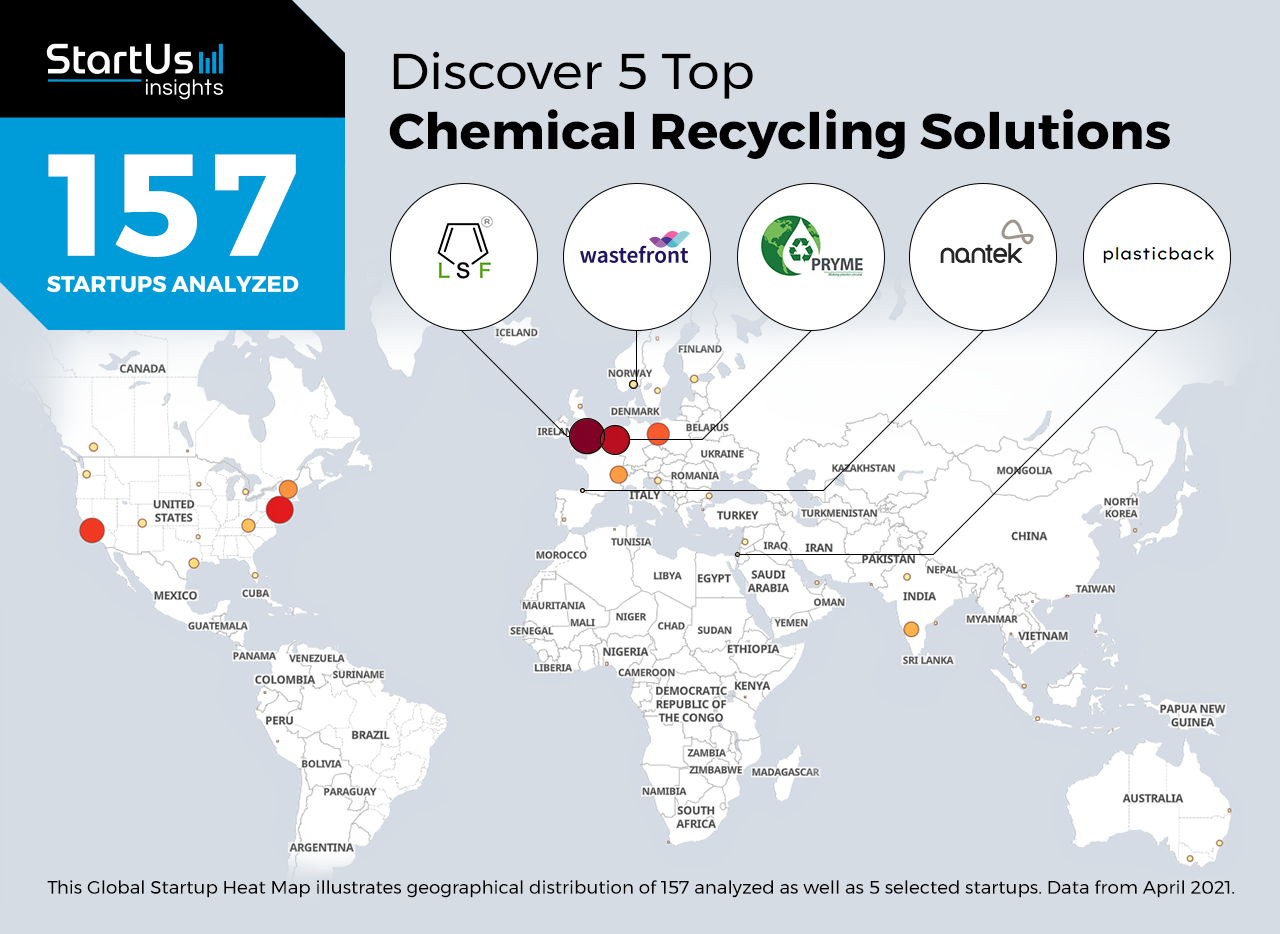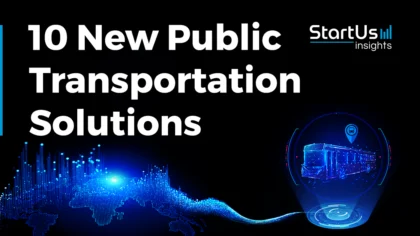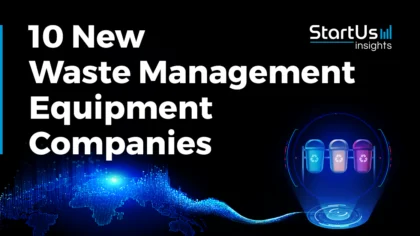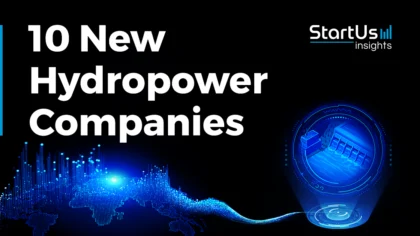Staying ahead of the technology curve means strengthening your competitive advantage. That is why we give you data-driven innovation insights into the materials industry. This time, you get to discover 5 hand-picked chemical recycling solutions.
Global Startup Heat Map highlights 5 Top Chemical Recycling Solutions out of 157
The insights of this data-driven analysis are derived from the Big Data & Artificial Intelligence-powered StartUs Insights Discovery Platform, covering 1.379.000+ startups & scaleups globally. The platform gives you an exhaustive overview of emerging technologies & relevant startups within a specific field in just a few clicks.
The Global Startup Heat Map below reveals the distribution of the 157 exemplary startups & scaleups we analyzed for this research. Further, it highlights 5 chemical recycling solutions that we hand-picked based on criteria such as founding year, location, funding raised, and more. You get to explore the solutions of these 5 startups & scaleups in this report. For insights on the other 152 chemical recycling solutions, get in touch.
Pryme converts Non-Recyclable Plastics to Fuel
Many plastics are non-recyclable and end up in landfills or natural ecosystems. Chemical recycling technologies break down such plastics into their constituent monomers. These monomers, such as ethene, propene, and styrene, find applications in the production of new, sustainable plastics as well as other valuable products. For instance, startups combine depolymerization with other chemical reactions to convert them into valuable hydrocarbon products.
Dutch startup Pryme converts non-recyclable plastic waste into petrochemical products. The startup’s reactor puts high pressure on the long carbon chains in plastics, breaking them down as condensable vapor. It redirects the non-condensable gas back into furnaces for heating. Pryme’s technology produces naphtha, a flammable mixture of liquid hydrocarbons.
Plastic Back develops Chemical Oxidation Technology
Waste manufacturers come in different sizes. As a result, generally, they require different strategies to recover plastics. Current methods require large areas and high temperatures. However, these also present further economic and environmental challenges. This is why cleantech startups are developing chemical oxidation solutions to convert plastic waste into valuable materials in a sustainable way.
Plastic Back is an Israeli startup converting plastic waste into crude oil and other raw materials. The startup’s chemical oxidation technology breaks down the plastic polymer into oils, waxes, and other valuable chemicals. By using a closed conversion unit, the process eliminates the need for heating and reduces the space required. The startup’s technology offers an alternative profit stream for landfill operators and waste manufacturers.
Low Sulphur Fuels provides a Fast Electrochemical Process
Lower sulfur content in fuels reduces the emissions of many greenhouse gases. This is why companies use hydrotreating to remove sulfur from fuels. However, the process uses large amounts of hydrogen and energy, making it unsustainable. To address this, material startups are innovating with chemical recycling solutions to produce low sulfur fuels. By extracting value from waste, these solutions further help tackle climate change.
British startup Low Sulphur Fuels develops a conversion technology to produce low sulfur fuels. The startup’s technology utilizes end-of-life hydrocarbon products such as plastics, oils, and rubber. The fast electrochemical process recovers the hydrogen energy content in the form of clean fuels. It offers low emission, low cost, and low sulfur marine gas oil (MGO) and naphtha for premium fuel markets.
Nantek develops a Carbon Molecule Release Mechanism
Plastic waste is a threat to natural ecosystems where it hurts biodiversity. Bringing plastic waste back into the material system addresses this, as well as reduces the use of fossil fuels in the production of more plastic. While recycling is possible for some plastics, they lose value over time. This is why circular economy solutions are looking for solutions to add value to waste plastics.
Spanish startup Nantek offers a chemical recycling technology. The startup’s Catalyst-Free Carbon Molecule Release Mechanism (CF-CMRM) allows for controlled depolymerization as well as controlling the size of the final compounds. The process modifies carbon link dynamics and carbon bonding, eliminating sulfur, metals, and corrosive agents. The startup’s single-step solution enables the production of clean paraffin, kerosene, synthetic fuels, and hydrogen.
Wastefront enables Rubber Waste Recycling
Millions of vehicle tires are discarded every year. Safe and sustainable disposal of end-of-life tires is a major challenge. To address this, material startups are turning to chemical recycling technologies. Chemical recycling technologies such as pyrolysis and vulcanization enable breaking down rubber tires into sustainable materials.
Wastefront is a Norwegian startup developing technology for rubber waste recycling. The startup uses a proprietary refined distillation process that removes any toxic gas produced during pyrolysis. This maximizes the production of valuable commodities from waste tires while minimizing byproducts such as carbon dioxide and heat.
Discover more Materials Startups
Materials startups, such as the 5 examples highlighted in this report, focus on surface engineering, lightweighting, and sustainability. While all of these technologies play a major role in advancing the materials industry, they only represent the tip of the iceberg. To explore more chemical recycling technologies, simply get in touch to let us look into your areas of interest. For a more general overview, you can download our free Materials Innovation Report to save your time and improve strategic decision-making.
